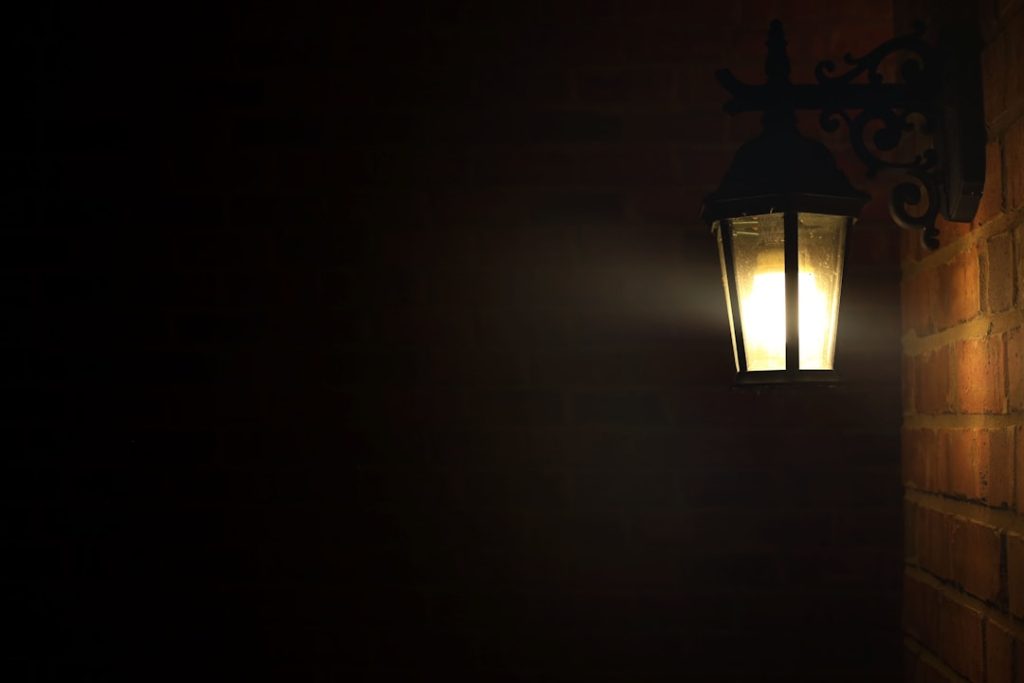Proper lighting is essential for the health and development of baby chickens. Light regulates their circadian rhythm, which affects growth, development, and overall health. Adequate lighting helps maintain hormonal balance, particularly melatonin and serotonin, which are crucial for growth and immune function.
Proper lighting also reduces stress and anxiety in chicks, promoting better health and productivity. Appropriate lighting stimulates natural behaviors in baby chickens, including feeding, drinking, and socializing. Insufficient light can lead to lethargy and inactivity, resulting in poor growth and development.
Proper illumination helps prevent behavioral issues such as feather pecking and cannibalism, which can occur in poorly lit environments. By providing a well-lit environment, caretakers create optimal conditions for baby chickens to thrive and develop into healthy adult birds.
Table of Contents
- 1 Duration of Light Exposure for Baby Chickens
- 2 Effects of Light on Baby Chickens’ Growth and Development
- 3 Recommended Light Schedule for Baby Chickens
- 4 Potential Risks of Overexposure to Light for Baby Chickens
- 5 Adjusting Light Duration as Baby Chickens Grow
- 6 Monitoring and Evaluating the Impact of Light on Baby Chickens
- 7 FAQs
Key Takeaways
- Proper lighting is crucial for the health and well-being of baby chickens, as it affects their growth, development, and overall productivity.
- Baby chickens should be exposed to 24 hours of light for the first few days to encourage feeding and drinking, followed by a gradual reduction to 16 hours of light per day.
- Adequate light exposure promotes healthy bone development, feather growth, and overall growth rate in baby chickens.
- A recommended light schedule for baby chickens includes 16 hours of light and 8 hours of darkness to mimic natural daylight and nighttime conditions.
- Overexposure to light can lead to stress, reduced growth, and potential health issues for baby chickens, so it’s important to monitor and adjust light duration accordingly as they grow.
Duration of Light Exposure for Baby Chickens
Early Stages of Life
In the early stages of their life, baby chickens require a consistent and appropriate amount of light to support their growth and well-being. It is recommended to provide 18-24 hours of light per day for the first week of their life to encourage feeding, drinking, and socializing.
Promoting Healthy Growth
This extended period of light exposure helps to stimulate their natural behaviors and promotes healthy growth. As the baby chickens grow older, the duration of light exposure should be gradually reduced to mimic natural daylight patterns.
Regulating Circadian Rhythm
From the second week onwards, the light exposure can be reduced to 16-18 hours per day to encourage rest and sleep. This reduction in light exposure helps to regulate their circadian rhythm and supports their overall health and development. It is important to gradually adjust the duration of light exposure to prevent stress and ensure that the baby chickens can adapt to the changes in their environment.
Effects of Light on Baby Chickens’ Growth and Development

Light plays a significant role in the growth and development of baby chickens. Adequate light exposure is essential for stimulating their natural behaviors, such as feeding, drinking, and socializing, which are crucial for their growth and well-being. Proper lighting also helps to regulate their circadian rhythm, which in turn affects their hormone balance and immune function.
This can have a direct impact on their growth rate, feed conversion, and overall health. In addition, proper lighting can also have a positive impact on the skeletal development of baby chickens. Adequate light exposure helps to stimulate physical activity, which is essential for bone strength and muscle development.
Furthermore, proper lighting can also have a positive impact on the reproductive development of baby chickens, laying the foundation for healthy egg production in the future. Overall, proper lighting is essential for supporting the growth and development of baby chickens in the early stages of their life.
Recommended Light Schedule for Baby Chickens
A recommended light schedule for baby chickens is essential for creating a healthy and stimulating environment for their growth and development. In the first week of their life, it is recommended to provide 18-24 hours of light per day to encourage feeding, drinking, and socializing. This extended period of light exposure helps to stimulate their natural behaviors and promotes healthy growth.
From the second week onwards, the light exposure can be gradually reduced to 16-18 hours per day to encourage rest and sleep. It is important to provide a consistent light schedule for baby chickens to prevent stress and ensure that they can adapt to changes in their environment. Additionally, it is crucial to provide a gradual transition between periods of light and darkness to support their circadian rhythm and overall well-being.
A consistent and appropriate light schedule is essential for creating a healthy and stimulating environment for baby chickens to thrive.
Potential Risks of Overexposure to Light for Baby Chickens
While proper lighting is essential for the growth and development of baby chickens, overexposure to light can pose potential risks to their health and well-being. Overexposure to light can disrupt their circadian rhythm, leading to stress, anxiety, and behavioral issues such as feather pecking and cannibalism. Additionally, prolonged exposure to light can also lead to sleep deprivation, which can have a negative impact on their growth rate and overall health.
Furthermore, overexposure to light can also have a negative impact on the reproductive development of baby chickens, leading to potential issues with egg production in the future. It is important to provide a balanced light schedule for baby chickens to prevent overexposure and ensure that they can maintain a healthy circadian rhythm. Monitoring their behavior and overall well-being is crucial to identify any potential risks of overexposure to light and make necessary adjustments to their lighting environment.
Adjusting Light Duration as Baby Chickens Grow

Regulating Circadian Rhythm
From the second week onwards, the light exposure can be gradually reduced to 16-18 hours per day to encourage rest and sleep. This reduction in light exposure helps to regulate their circadian rhythm and supports their overall health and development.
Supporting Healthy Egg Production
As baby chickens approach the point of lay, it is important to provide a consistent light schedule to stimulate healthy egg production. Providing 14-16 hours of light per day can help to stimulate reproductive development and support healthy egg production in adult chickens.
Monitoring and Adjusting
It is crucial to monitor their behavior and overall well-being as they grow older and make necessary adjustments to their lighting environment to support their growth and development.
Monitoring and Evaluating the Impact of Light on Baby Chickens
Monitoring and evaluating the impact of light on baby chickens is crucial for ensuring their health and well-being. It is important to observe their behavior, growth rate, feed conversion, and overall well-being to identify any potential issues related to their lighting environment. Additionally, it is important to monitor their reproductive development as they approach the point of lay to ensure that they are receiving adequate light exposure to support healthy egg production.
Furthermore, it is important to regularly evaluate the impact of light on baby chickens by consulting with poultry experts or veterinarians. They can provide valuable insights into optimizing the lighting environment for baby chickens based on their specific needs and requirements. Regular monitoring and evaluation of the impact of light on baby chickens are essential for creating a healthy and stimulating environment for them to thrive.
If you’re interested in learning more about how to properly care for baby chickens, you may want to check out this article on how to build a chicken coop in Grand Island, NE. Understanding the proper environment for your chickens is crucial for their health and well-being, and this article provides valuable information on creating a suitable living space for your feathered friends.
FAQs
How long should you keep a light on baby chickens?
It is recommended to keep a light on baby chickens for 24 hours a day for the first week of their life. After the first week, you can gradually reduce the light to 16 hours a day until they are fully feathered.
Why do baby chickens need light?
Baby chickens need light to regulate their body temperature, encourage healthy growth, and prevent them from pecking at each other. Light also helps to establish a day-night cycle for the chicks.
What type of light should be used for baby chickens?
A red or infrared heat lamp is commonly used for baby chickens. This type of light provides warmth without disturbing the natural day-night cycle of the chicks.
At what age can baby chickens be without a light?
Baby chickens can be without a light once they are fully feathered, which typically occurs around 6-8 weeks of age. At this point, they are able to regulate their own body temperature and no longer require supplemental heat from a light.
Meet Walter, the feathered-friend fanatic of Florida! Nestled in the sunshine state, Walter struts through life with his feathered companions, clucking his way to happiness. With a coop that’s fancier than a five-star hotel, he’s the Don Juan of the chicken world. When he’s not teaching his hens to do the cha-cha, you’ll find him in a heated debate with his prized rooster, Sir Clucks-a-Lot. Walter’s poultry passion is no yolk; he’s the sunny-side-up guy you never knew you needed in your flock of friends!







